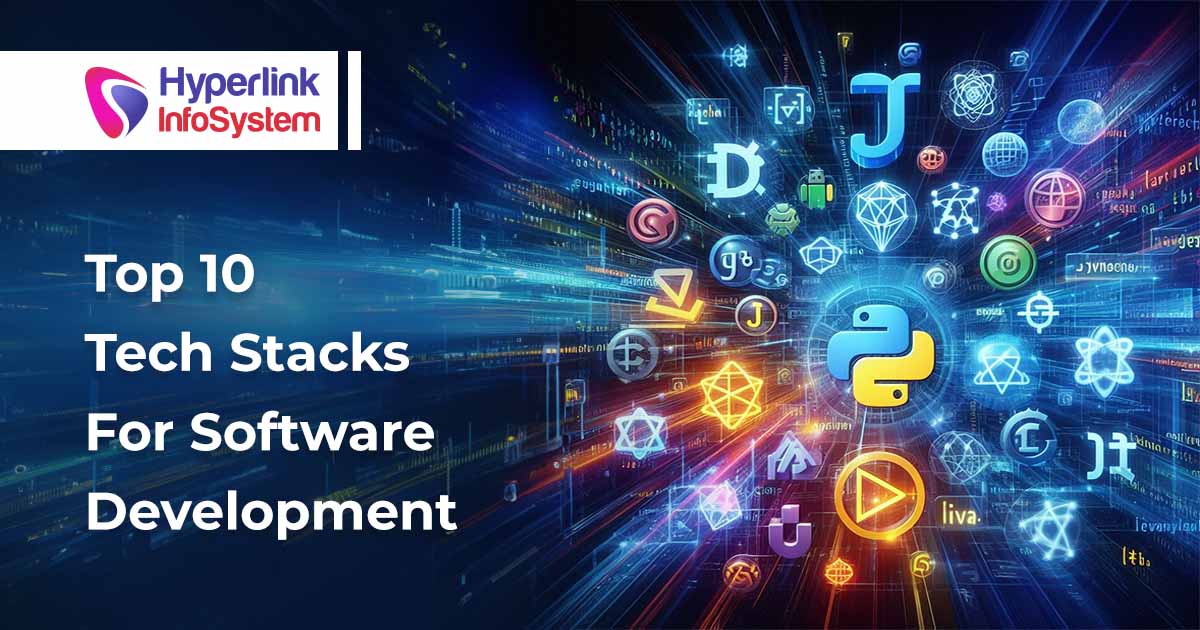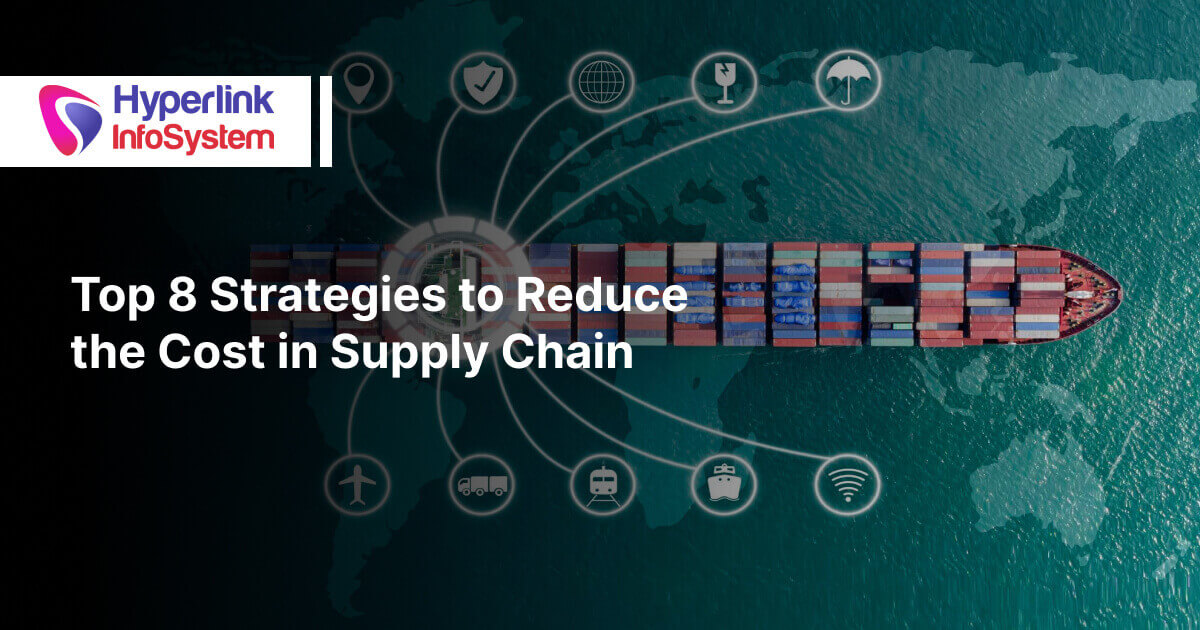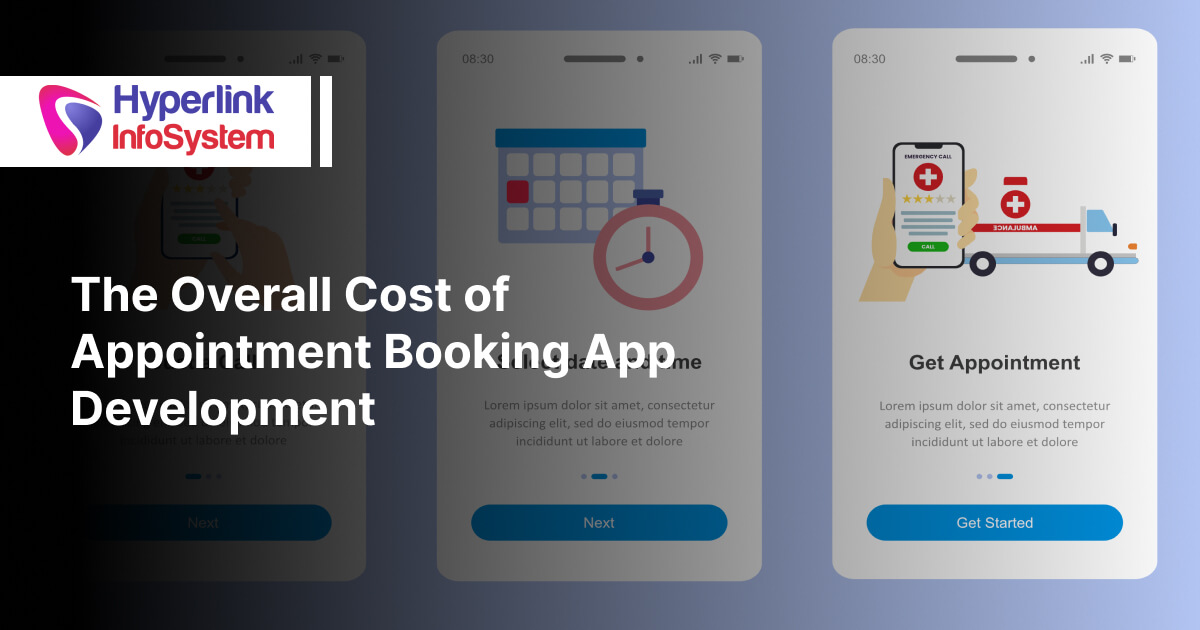The article discusses the top 10 tech stacks for software development. These stacks include Lamp, MERN, MEAN, Ruby on Rails, MEVN, and Java. All these stacks come with their own merits and demerits. Read the article to learn about the industry leaders and top 10 tech stacks.
Introduction
In the ever-evolving landscape of software development, the choice of a technology stack plays a pivotal role in the success of a project. A technology stack, comprising programming languages, frameworks, libraries, and tools, forms the backbone of software applications.
Everyone knows what a technology stack , so this article explores the top 10 tech stacks that are set to dominate software development, offering insights into their benefits and the crucial considerations for selecting the right stack.
Here are a few tips for choosing your technology stack.
Also Read, How To Choose Right Technology Stack For Your Mobile App?
Top 10 Tech Stacks For Software Development
Read below to know the best stacks for software development. The unavoidable benefits of using technology stacks in software development.
1) Lamp
A stack known for its simplicity and low cost is Lamp. The lamp is a great choice for developers as it allows them to create a dynamic and interactive website. It is an open-source operating platform with four major components: Linux, Apache, MYSQL, and PHP. Lamp stands out of the crowd because of its flexibility and adaptability. A great example of this is Slack.
2) MERN stack
MERN is dependable for web development. It is the perfect choice to build robust web applications. This dynamic stack has 4 technologies such as MongoDB, Express.js, React, and Node.js.
Each development highly contributes to crafting the scalable application. This is the future-proof choice for web developers as the applications are easy to maintain. hire dedicated developers in Canada who can work better for your app growth.
Netflix is created by the MERN stack.
3) Mean Stack
MEAN stack is a free and open-source tech stack that is reliable for everyone. This versatile stack has four features such as MongoDB, Express.js, AngularJS, and Node.js. It is the go-to choice for developing real-time applications.
The key feature of the MEAN stack is the ability to do this on both sides(client and server side). This reduces the effort of developers as they don’t have to switch to two programming languages. YouTube is a great example of a MEAN stack.
4) Ruby on rails
Ruby is a great object-oriented language. It has a large community so any developer can clear their queries easily. The modular designs of ruby are helpful for scalability and easy maintenance. Airbnb is built with ruby rails. Hire software developers to choose the best for your app.
5) MEVN stack
MEVN stack is a popular technology stack. This is made up of 4 essential elements. Those are MongoDB, Express.js, and Vue. JS, and Node.js. It is the most preferable option for real-time data streaming. Any developer will choose this to get the dynamic user interfaces.
The MEVN stack's scalability and ease of deployment are further benefits. Applications developed with the MEVN stack can be swiftly deployed on cloud computing platforms like Microsoft Azure, Google Cloud, and Amazon Web Services.
6) Flutter
Google’s Flutter is an open-source mobile application development. But as of late, it has advanced to the point that web development can be done with it. Because of its special features and advantages, Flutter for Web is a new web development trend that is becoming more and more popular.
Alibaba is an example of a flutter.
7) Java
Java is a well-known programming language among developers. But it is complex to learn. Read further to learn more about Java.
Most enterprise-level applications prefer Java as their programming language. This language has been around for more than decades. It boasts a sizable developer community in addition to an abundance of frameworks, tools, and libraries that make development easier.
For novice developers, understanding Java can be challenging. It also requires more resources than other stacks, which increases the total cost and time of development.
The great app Tesla was built with Java.
8) Python
Python is a high-level programming language.. It has an impact on many industries. A few examples are,
- Data analysis
- AI, machine learning
- Web development
- Scientific computing
The syntax of Python is simple. It is known for its usability and adaptability. That’s why it is apt for both experienced and new developers. For developers who want to build complex and feature-rich applications, it is the go-to choice for them.
A great application built by Python is Pixar.
9) Serverless Stack
Serverless architecture is the latest trend in the software development company. So the developers need not worry about the infrastructure and server management. So the developer can only focus on the code rather than the infrastructure.
It is important to remember that the serverless stack might only be suitable for specific kinds of applications. For instance, you might need to consider different options if your application requires lengthy processes.
Additionally, if your application demands high responsiveness, you can encounter latency problems due to the serverless stack's reliance on cloud computing resources.
Figma is the greatest example of this.
10) ASP.NET
This is the go-to choice for developers if they need to build a dynamic website. It is a framework for server-side web applications made specifically for the Microsoft.NET framework.
This is a bit intricate to use so it requires experience to work on it. It has a tough learning curve compared to the other programming languages.
The legend Microsoft is a great example of ASP.NET.
Conclusion
These are the tech stacks that’ll rule software development in 2024. Choosing Magento for your online store brings forth a multitude of merits. Its open-source and customizable nature allows businesses to tailor their digital presence, while scalability ensures that growth is seamlessly accommodated.
The feature-rich environment, SEO-friendliness, multi-store management capabilities, and global reach make Magento a comprehensive solution. Security features, responsive design, and ongoing support further enhance its appeal.
 +1 309 791 4105
+1 309 791 4105





















































 +91 8000 161161
+91 8000 161161
